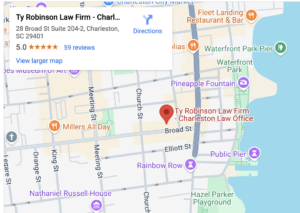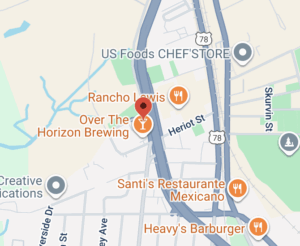Ty Robinson | September 3, 2025 | Personal Injury

If you’ve been seriously injured in an accident, you may be wondering: Do I really have a chance of winning a personal injury lawsuit? The truth is, no two cases are the same. Some cases are straightforward, while others involve complex disputes over fault, insurance coverage, or damages.
Here’s what it takes to win a personal injury case, the challenges you may face, and how having an experienced personal injury attorney can make all the difference.
What Does It Mean To “Win” a Personal Injury Case?
When people talk about “winning” a lawsuit, they often picture a dramatic courtroom trial. But in reality, most personal injury cases never go before a jury. Instead, they are resolved through settlement. Less than five percent of injury lawsuits actually filed in court proceed to trial.
“Winning” your case usually means securing compensation that fairly covers your losses, such as medical costs, lost earnings, property damage, and your physical and mental suffering.
Whether through settlement or trial, the goal is the same: holding the at-fault party accountable and getting the financial support you need to move forward.
Factors That Affect How Hard It Is To Win
Several key factors determine how difficult your case may be to win.
1. Liability (Who Was at Fault?)
To recover compensation, you must prove that another person, business, or entity was responsible for your injuries. In some accidents – like rear-end car crashes – liability may be clear. In others, fault is hotly contested.
For example, slip and fall cases often involve disputes over whether the property owner knew about a hazard or took reasonable steps to mitigate the risk. The injured victim may also be assigned some blame based on their actions and whether they were negligent.
2. Evidence
Winning a personal injury lawsuit requires strong evidence. You must have evidence that proves liability. To prove the other party was negligent, you must prove their breach of duty of care, causation, and your damages.
Weak, insufficient, or conflicting evidence can jeopardize your case. Witness testimony, for example, may be valuable, but it should be backed by physical evidence if possible. Witnesses may have trouble remembering details, and two witnesses may have different recollections of what happened.
The stronger the evidence, the easier it is to prove your case.
3. Insurance Company Resistance
Insurance companies are notorious for minimizing payouts. After all, they are for-profit businesses, and their goal is to increase profits for shareholders. That means their primary interest is in limiting how much they pay out for claims.
The insurance company may argue your injuries aren’t as severe as you claim, or that you were partially responsible. They may blame a pre-existing condition. When liability is unclear or damages are substantial, they will invest more in fighting for a fair settlement.
Overcoming these tactics takes persistence and legal skill.
4. Severity of Your Injuries
When injuries are relatively minor to moderate in severity, the insurance company may be more likely to settle simply because fighting the claim will cost too much money.
Cases involving catastrophic injuries, such as severe brain injuries or spinal cord injuries, can be harder to resolve. Damages may total millions, just in long-term medical costs alone. That means insurers fight harder to limit payouts, and they are more willing to go to trial.
5. Comparative Negligence
When two or more people are liable for damages, many states, including Georgia, use a modified comparative negligence rule to assign a share of liability to each party. This means your compensation can be reduced if you share any fault for the accident.
If you are found 50% or more at fault in Georgia, you cannot recover damages at all. Ultimately, if you share any fault for your accident, it may make it harder to win your case.
Common Challenges in Personal Injury Lawsuits
Even strong cases face obstacles. Here are some of the most common:
- Disputed liability. The defendant may deny fault or try to shift blame. In complex cases, determining liability can be difficult.
- Pre-existing conditions. The insurance company may argue that your injuries existed before the accident. They may claim your symptoms and medical costs are related to an existing condition, not a new injury.
- Lowball offers. Insurers often offer far less than your case is worth, hoping you’ll accept quickly.
- Damages can be hard to calculate. Sometimes it’s difficult to determine the value of damages, especially in cases involving long-term disability, loss of independence, or chronic pain.
- Statements or actions that are misconstrued. Statements made at the scene of the accident or to the insurance adjuster may be misconstrued and used against you.
Attempting to handle your case alone can introduce new challenges too. Deadlines, court procedures, and evidentiary rules can derail a case without proper legal guidance.
What You Can Do To Strengthen Your Case
The steps you take after your injury can make or break your case. Here’s how to make your case as strong as possible:
- Get medical treatment immediately
- Follow your doctor’s recommendations and complete any treatment ordered
- Document everything with photos, notes, and receipts
- Avoid posting about your accident on social media or discussing the details of your case with others
- Be truthful with the insurance company, but do not give more information than necessary
- Do not give a recorded statement without speaking with a lawyer
Contact a personal injury attorney early in your case to protect your rights and gather evidence before it’s lost. Your lawyer can help you take the next steps in pursuing compensation.
The Role of an Experienced Personal Injury Lawyer
Trying to win a personal injury lawsuit on your own can be overwhelming. An experienced personal injury lawyer can:
- Investigate the accident and gather crucial evidence
- Work with experts to prove liability and damages
- Craft a strong legal argument and defend you against the insurance company’s tactics
- Provide legal guidance and help you avoid mistakes
- Handle negotiations with the insurance company
- File a lawsuit and take your case to trial if needed
If you’ve been injured due to someone else’s negligence, don’t let fear of a difficult process stop you from pursuing justice.
Experienced Help Can Make All the Difference
Winning a personal injury lawsuit isn’t always easy. It requires strong evidence, persistence, and knowledge of the law. Insurance companies will do everything they can to avoid paying. But with an experienced lawyer by your side, your chances of success increase dramatically.
For help, contact Ty Robinson Law Firm. We offer a free consultation with a Charleston, SC, personal injury lawyer.
Contact Our Charleston Personal Injury Lawyers At Ty Robinson Personal Injury & Car Accident Law Firm Today
If you were injured in an accident in Charleston, South Carolina, and need legal help, contact our Charleston car accident lawyer at Ty Robinson Personal Injury & Car Accident Law Firm to schedule a free case review today.
Ty Robinson Personal Injury & Car Accident Law Firm
28 Broad St Suite 204-2
Charleston, SC 29401
(843) 278-2222



